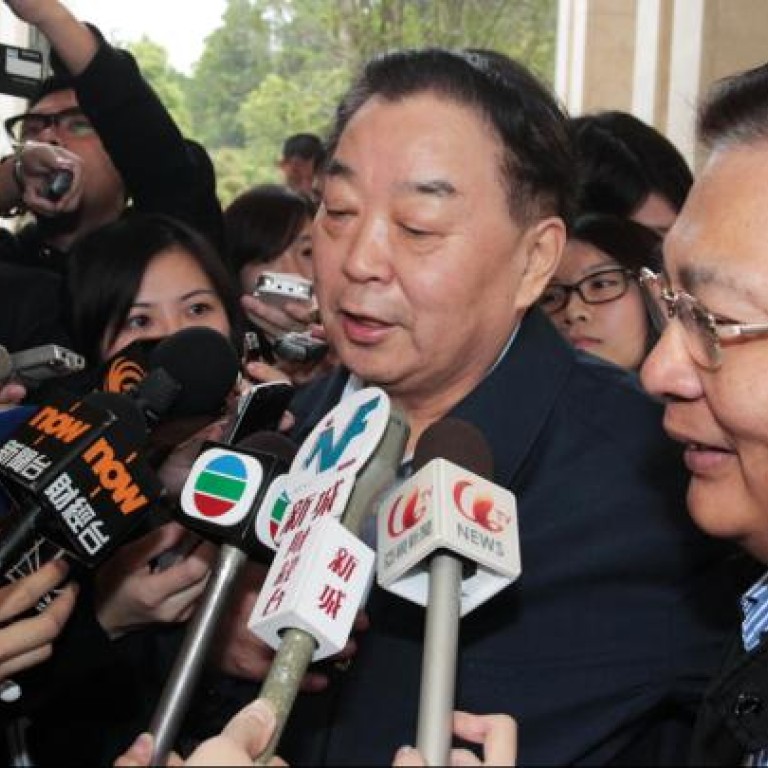
Beijing needs to trust Hongkongers to elect the right chief executive
Mike Rowse wonders how NPC official could misjudge public sentiment
The Cantonese language is replete with colourful phrases that capture the spirit of what the writer or speaker means to convey in a very vivid way. Someone saying the obvious is told his mother is a woman. Someone being over-elaborate, going into excessive detail or adding unnecessary features so as to spoil what has been done, is said to be drawing legs on a snake.
The origin of this latter phrase is a story from China's Warring States period. A group of servants was competing for a bottle of wine by drawing a snake. The first to finish saw the others were still drawing so he decided to add legs, thereby losing the contest and the prize because no snake has legs.
I was reminded of these sayings when examining reports of remarks by Qiao Xiaoyang, chairman of the Law Committee of the National People's Congress. Qiao is quoted as saying that future chief executives elected under universal suffrage must love China, love Hong Kong and not seek to confront the central government.
There is nothing new here. Deng Xiaoping said much the same thing 20 years ago and no one has ever, to my knowledge, challenged it.
These criteria are all so obvious that one struggles to think of what circumstance Qiao was trying to warn against. Did he think someone who hated China, or Hong Kong, and who wanted to confront Beijing, would seek the office? Did he think Hongkongers, who have consistently shown themselves to be sensible and pragmatic, would elect such a person?
Moreover, the Basic Law provides that the chief executive, after election by Hong Kong people, is to be appointed by Beijing. So, if the worst came to the worst, then the central government could simply refuse to appoint the elected person.
That would, of course, create a constitutional crisis, but in the circumstances it would be no more than Hong Kong deserved. And it would give people a chance to pause and think.
As if these remarks were not enough of a puzzle, Qiao went further and said that consultation on the election reforms should not even begin until most Hong Kong people agreed that those who did not meet his criteria should not rule the city.
Yet, the vast majority do already accept these conditions. By setting this as a new up-front condition, Qiao implies that he believes otherwise, which shows him to be completely out of step with public sentiment here.
Which brings us to the nub of the problem. Assuming Qiao was speaking sincerely and on the basis of what he took to be an accurate assessment, the question that must be asked is: who is feeding back to the central leadership such false information that could lead a senior figure to make such remarks in all seriousness?
It cannot be the present administration; they all know better. And despite the recent change of leadership in the central government's liaison office, there are surely enough old hands still around there and in the Hong Kong and Macau Affairs Office in the capital to know that this is nonsense.
Could it be coming from powerful individuals here, disaffected with the present administration and with the ear of Beijing? One can only speculate.
We are left with the intriguing question of how the population could ever prove that it agrees its future leaders should have the quoted set of pretty obvious qualities.
Let me offer a suggestion: we live in a people's republic; why don't we just trust the people? In the extremely unlikely event that the collective will is a blatant error, the ultimate sanction of non-appointment still remains.
Meanwhile, Mr Qiao, rest assured: snakes have no legs and - take it from me - your mother is a woman.

